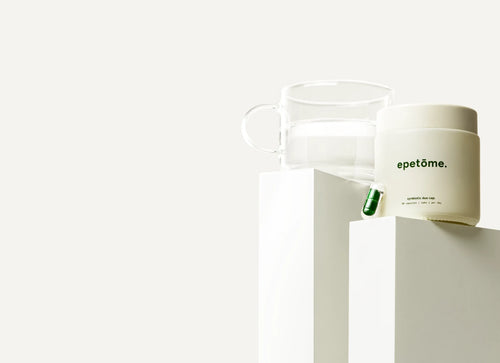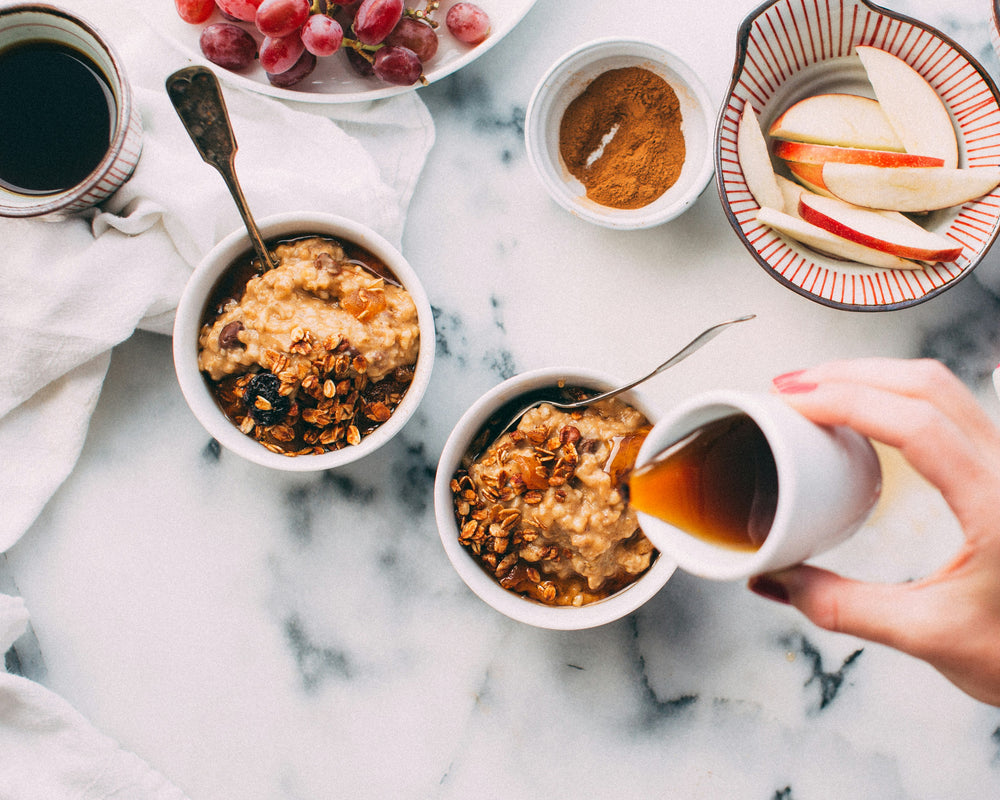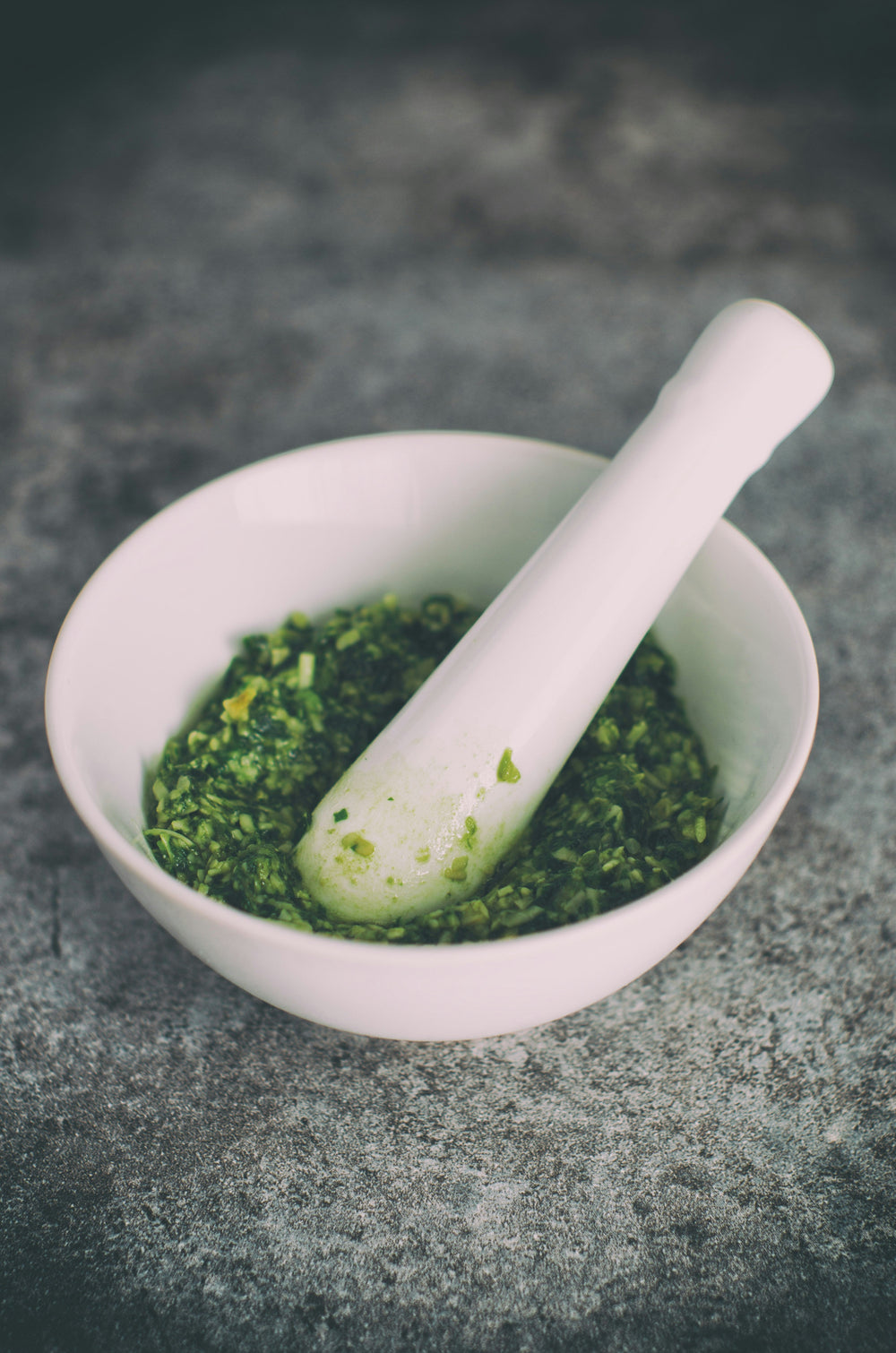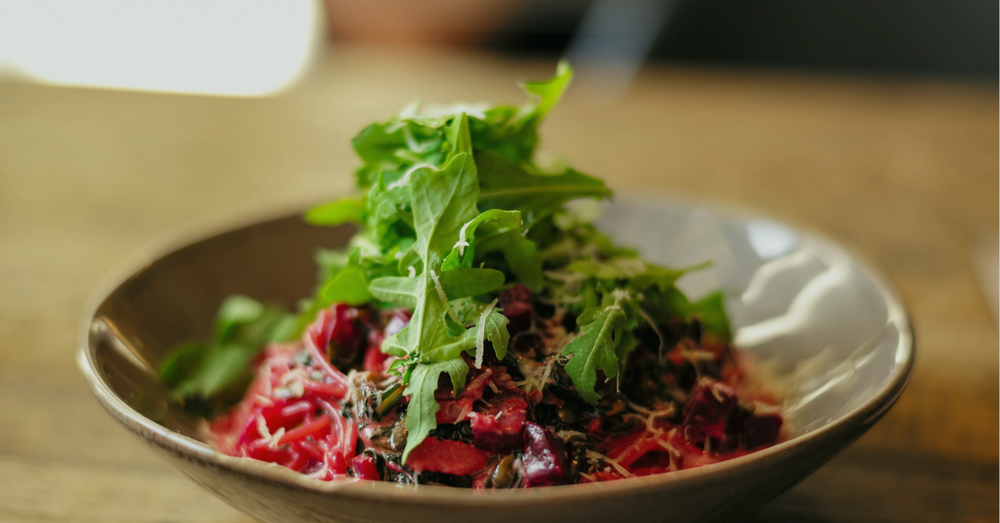This creamy green soup brings together broccoli, cauliflower, and kale for a delicious bowl that feels both comforting and energising. Finished with crispy chickpeas and toasted almonds, it is an easy way to enjoy a whole day’s worth of greens in one simple, nourishing meal.
how exercise supports your gut health.
How Exercise Supports Your Gut Health When we talk about exercise, it doesn’t always mean long runs or heavy gym sessions. Movement comes in many forms. A brisk walk to the shops, dancing in your kitchen, gardening, or stretching on the living room floor all count. Every bit of movement nudges your body and the trillions of microbes living in your gut towards better health. Think of exercise as giving your body and your gut community a gentle reminder to keep everything flowing smoothly. Why Our Digestion Needs It Your digestive system is powered by layers of muscle that contract to move food through your gut. Exercise helps to keep this natural movement active, so food does not linger too long. When transit time slows, gut bacteria may run short of their preferred fuel (carbohydrates) and switch to breaking down protein instead. This process can produce by-products such as ammonia and sulphur compounds, which may irritate the gut lining. By keeping things moving, exercise helps your microbes get the energy they need to thrive. In turn, they produce short-chain fatty acids (SCFAs). These are natural compounds that feed the cells lining your gut, help lower inflammation, and even support energy balance across the body. In this way, regular movement creates an environment where your gut can work at its best. How It Benefits Immunity Around 70 to 80 percent of your immune system sits in your gut tissue. Exercise encourages the growth of helpful bacteria that train and support those immune cells. It can also help strengthen the gut barrier, the protective lining that decides what gets absorbed into your bloodstream and what stays out. At the same time, the relationship between exercise and immunity is a balancing act. Endurance athletes who train at very high volumes often see a...

How Exercise Supports Your Gut Health
When we talk about exercise, it doesn’t always mean long runs or heavy gym sessions. Movement comes in many forms. A brisk walk to the shops, dancing in your kitchen, gardening, or stretching on the living room floor all count. Every bit of movement nudges your body and the trillions of microbes living in your gut towards better health.
Think of exercise as giving your body and your gut community a gentle reminder to keep everything flowing smoothly.
Why Our Digestion Needs It
Your digestive system is powered by layers of muscle that contract to move food through your gut. Exercise helps to keep this natural movement active, so food does not linger too long. When transit time slows, gut bacteria may run short of their preferred fuel (carbohydrates) and switch to breaking down protein instead. This process can produce by-products such as ammonia and sulphur compounds, which may irritate the gut lining.
By keeping things moving, exercise helps your microbes get the energy they need to thrive. In turn, they produce short-chain fatty acids (SCFAs). These are natural compounds that feed the cells lining your gut, help lower inflammation, and even support energy balance across the body. In this way, regular movement creates an environment where your gut can work at its best.
How It Benefits Immunity
Around 70 to 80 percent of your immune system sits in your gut tissue. Exercise encourages the growth of helpful bacteria that train and support those immune cells. It can also help strengthen the gut barrier, the protective lining that decides what gets absorbed into your bloodstream and what stays out.
At the same time, the relationship between exercise and immunity is a balancing act. Endurance athletes who train at very high volumes often see a temporary dip in immune function if recovery is insufficient. This can leave them more vulnerable to upper respiratory tract infections. The reason is that chronic fatigue can build up inflammatory factors in the body, which interfere with immune regulation and reduce the number and activity of key immune cells such as T cells, B cells, natural killer cells, and neutrophils.
The good news is that moderate and balanced training supports immunity. Combined with rest and recovery, exercise helps keep your defences strong, reduces infection risk, and builds resilience.
How It Benefits Your Bones And Muscles
Exercise is well known for strengthening bones and muscles. What is fascinating is how much your gut microbiota is involved in this process.
Your skeletal muscle is the largest organ in the body, and its health depends not only on activity and diet but also on the gut ecosystem. Microbes and their metabolites help regulate how muscles use and store energy. The so-called gut–muscle axis shows how microbial balance supports muscle mass, metabolism, and performance. Research even suggests that specific metabolites like butyrate may influence muscle mass in women after menopause.
There is also a gut–bone axis. This means gut microbes can influence bone metabolism by shaping hormone secretion, immune responses, and nutrient absorption. When the gut microbiome is balanced, it helps protect bone mass and improve bone mineral density which is especially important during high-intensity training or later in life.
What Type of Exercise is Best?
The good news is that it does not need to be extreme. Low and moderate intensity activities such as walking, cycling, swimming, yoga or hiking are especially friendly for your gut. They help reduce inflammation, improve microbial diversity, and support digestion without placing too much stress on the system.
If you enjoy higher intensity exercise, such as HIIT, long-distance running or competitive training, it is important to balance it with recovery. Pushing hard without rest can temporarily make the gut lining more permeable, sometimes called leaky gut. With proper rest and balance, vigorous activity can still be beneficial over time.
Research shows that taking part in moderate to high intensity exercise for 30 to 90 minutes at least three times per week, or between 150 and 270 minutes per week, for at least eight weeks is likely to bring about measurable changes in the gut microbiota.
If You Do Intense Exercise, You Need to Read This
Most of the time, exercise is a gift to the gut. But during very intense training, the gut can be placed under stress. Blood is diverted to the muscles, leaving less supply for the digestive tract. This can temporarily weaken the gut barrier, slow digestion, and increase the risk of discomfort or infection.
Synbiotics, which combine probiotics (helpful live bacteria) with prebiotics (the fibres that feed them), may help keep the gut supported during these times. Research has found that in football players training intensely for six weeks, synbiotics:
-
lead to fewer reports of upper respiratory tract infections
-
Improved immune markers linked with gut protection
-
Supported recovery by maintaining balance in the gut environment
Another scientific review also points to synbiotics helping by nourishing the gut ecosystem. This support allows the gut to better regulate inflammation, manage oxidative stress, and keep energy metabolism steady, all of which reduce the strain that high-intensity training places on digestion.
Conclusion
Exercise supports digestion, strengthens immunity, boosts your mood, protects your bones and muscles, and nurtures a diverse community of microbes that work hard on your behalf. Whether it is a walk, a swim, or a workout, every movement counts. And if you are training intensely, a synbiotic might give your gut the extra support it needs.
References
Boytar, A. N., Skinner, T. L., Wallen, R. E., Jenkins, D. G., & Dekker Nitert, M. (2023). The effect of exercise prescription on the human gut microbiota and comparison between clinical and apparently healthy populations: A systematic review. Nutrients, 15(6), 1534. https://doi.org/10.3390/nu15061534
Lv, W.-Q., Lin, X., Shen, H., Liu, H.-M., Qiu, X., Li, B.-Y., Shen, W.-D., Ge, C.-L., Lv, F.-Y., Shen, J., Xiao, H.-M., & Deng, H.-W. (2021). Human gut microbiome impacts skeletal muscle mass via gut microbial synthesis of the short-chain fatty acid butyrate among healthy menopausal women. Journal of Cachexia, Sarcopenia and Muscle, 12(6), 1860–1870. https://doi.org/10.1002/jcsm.12788
Yang, K., Chen, Y., Wang, M., Zhang, Y., Yuan, Y, Hou, H., & Mao, Y.-H. (2024). The improvement and related mechanism of microecologics on the sports performance and post-exercise recovery of athletes: A narrative review. Nutrients, 16(11), 1602.
https://doi.org/10.3390/nu16111602
lifestyle. gut health recipes.
ready in 10 minutes
herb-whipped cottage cheese chicken bagels.
These basil whipped cottage cheese protein bagels make a fresh, high-protein breakfast or lunch, combining creamy herb-blended cottage cheese with juicy chicken, rocket, and tomatoes. They’re quick to assemble, packed with flavour, and perfect for a nourishing breakfast or light lunch.
ready in 10 minutes
kiwi chocolate protein chia pots.
These Kiwi Chocolate Protein Chia Pots make an ideal high-fibre, high-protein breakfast that keeps you full and energised all morning. They’re quick to prepare, easy to store, and perfect for a healthy grab-and-go option.
ready in 15 minutes
spiced apple porridge.
This spiced apple and pumpkin seed porridge is a warming, high-fibre breakfast that’s perfect for cosy mornings. Made with creamy oats, gently caramelised apples and a crunchy pumpkin seed topping, it’s ready in just 15 minutes and serves one.
ready in 50 minutes
prep-ahead baked blueberry oats.
These prep-ahead oven-baked oats with blueberries and bananas are rich in protein and fibre, making them a nourishing, gut-friendly breakfast to enjoy all week.
ready in 15 minutes
spicy green eggs with feta.
These spicy green eggs with feta are a quick, protein-rich recipe packed with gut-friendly ingredients like spinach, courgette, and spring onion. Baked in the oven or air fryer, they’re simple to make, full of flavour, and support digestion with a balance of fibre, protein, and healthy fats. Perfect for breakfast, brunch, or a light meal, this vibrant dish proves that nourishing your gut can be both delicious and easy.
ready in 10 minutes
egg wrap with pesto.
Bright, fresh, and ready in just 10 minutes, this flavour-packed wrap serves one and is ideal for breakfast, lunch, or any time you’re after something simple yet filling.
ready in 10 minutes
peach cobbler overnight oats.
Start your day with a gut-friendly twist on a classic dessert. The peach cobbler overnight oats serve 2–3 and takes just 10 minutes to prepare the night before. Packed with fibre, flavour and feel-good ingredients, it’s the perfect make-ahead option for busy mornings or a nourishing snack you can enjoy any time of day.
ready in 15 minutes
smoky egg salad bagel crunch.
This smoky harissa egg bagel is the perfect 15-minute meal. Made with creamy Greek yoghurt, tangy pickles, and a hint of spice, it’s a high-protein twist on classic egg salad that delivers on both taste and texture. Ideal for busy days, this easy bagel recipe makes lunch feel gourmet without the effort.
ready in 20 minutes
chewy breakfast matcha protein cookies.
Soft, satisfying, and subtly sweet—these breakfast cookies are made to fuel your morning the right way. With fibre-rich oats, plant-based protein, and antioxidant-packed matcha, they’re a gut-friendly grab-and-go option that doesn’t compromise on flavour or function.
ready in 15 minutes
lemon & poppy seed pancakes.
Emily's light, gut-friendly crêpes are the perfect balance of fibre, protein, and healthy fats to support digestion and keep you feeling great.
ready in 10 minutes
carrot cake breakfast oats.
Start your day with a delicious and nutritious breakfast option - Carrot Cake Oats. Filled with fibre diversity to promote healthy digestion.










































